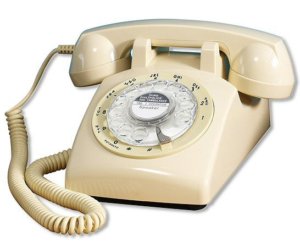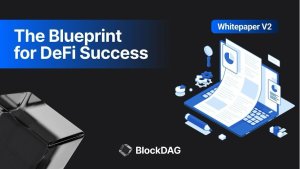OFCOM: Phones checked every 12 minutes on average – FX brokers take note, this is your future
We look at how OFCOM’s report shows FX brokers how to get new client bases of much higher quality without the continual grind. Let the clients automate your sales process by revolutionizing the trading platform. Here is our report and our candid opinion

The days of the desktop are either numbered, or over.
Very few domestic computer systems involve a hearing-aid beige combination of external monitor, keyboard and separate rectangular box containing the mainboard, power supply and processor, this type of hardware having long since been replaced by lightweight laptops and tablets.
The widespread adoption of tablets is quite interesting, largely because due to its appeal as an even more compact version of the now very traditional laptop, tablets have gradually foist the mobile operating system onto the general populace to the point at which pretty much every user of any electronic product worldwide is now very accustomed to the Google Android and Apple iOS systems, both of which are the base system for modern cellular telephones.
With the shift away from Microsoft Windows-based desktops and to some degree laptops for non-commercial home use, the emphasis has now become very much concentrated on mobile devices. Indeed, many students in today’s universities have likely never owned a desktop, and their lifestyles are all about app-based operation for multiple aspects from ordering sushi (those poor students!) to organizing travel, to submitting dissertations.
With this in mind, the joined-at-the-hip nature of most smartphone users is evident in every area of society. Today, the Office of Communications (OFCOM) in Britain, the official government organization that regulates the telecommunications industry, has issued a report stating that the average resident of the United Kingdom checks the cellular phone at extremely regular intervals.
OFCOM’s study into the nation’s digital habits also showed one in five people spend more than 40 hours a week online, while the average person checks their smartphone once every 12 minutes. In 2018, nearly four in five (78%) of people owned a smartphone, while over half (58%) own a tablet.
Given this habit-based behavior, it is quite easy to make an estimate which backs this up. An observation for a few moments on any busy street will often reveal people of all ages standing, head angled at 45 degrees, scrutinizing the screen on their telephone.
In the UK, a nation in which discretion and awareness toward fellow citizens is a very endearing feature of its society, the constant engrossment in the phone is not prevalent in the London Undeground where people quietly make their journey, traffic light intersections are not unusually loud places to pass by as British people by enlarge do not spend their entire car journeys yelling on their phones incessantly, however there are some parts of the world where this is omnipresent, hence it is likely that the 12 minute intervals at which British people check their phones may well be less than certain other parts of the world such as the Middle East, the Indian Subcontinent and South East Asia, where it is likely to be every two or three minutes.
Thus, FX brokerages must take note of this as it is a habit-based, therefore completely self-directed means of not only increasing trading activity but most importantly tapping into new client bases.
FinanceFeeds research with regard to the majority of retail client bases among small to medium sized MetaTrader-based brokerages is that due to the affiliate marketing and lead sourcing networks that exist that have specifically targeted FX firms over the years, combined with the easy transition of retail traders to other MetaTrader-based brokers, it is very common for five or six sales calls per day to be made to a trader who may have traded for a very short time a few years ago, who has since become tired of the calls and started to screen them, thus diminishing the opportunities for conversion.
Add this to the cost of operating call centers, and large scale sales operations, and it becomes clear that a new channel which costs less and casts a wider net is required.
eToro got this right by gaining an investment from China’s PingAn Ventures, the venture capital division of PingAn Bank which took eToro’s platform and integrated it into PingAn’s application, exposing a massive new retail banking customer base to eToro by simply being present on the screen of a cellular phone.
Interestingly (and this is very much true of me too – Ed) OFCOM’s research shows that the amount of time people spend making calls from their mobile phone has also dropped considerably, as 75 per cent of smartphone users said making calls was important, while 92 per cent said web browsing was important.
The study shows that our reliance on being connected comes with negative consequences. 15 per cent said being online made them feel like they were always at work, while more than half said connected devices interrupt face-to-face conversations with friends and family.
This should be viewed as very good reading by FX brokerages, as the waning interest in the use of cellular phones for making and receiving calls compared to the use of data is enough to make a case for stopping calling and starting to make self-determining applications which not only host the trading platform and place full order execution and account management functionality onto a tablet or smartphone, but also calls to action with regard to sales and retention.
After all, engagement of generic, widespread applications such as eBay, YouTube and Amazon are littered with a continual stream of push notifications and calls to action, which every user accepts as part of life.
The question any marketing director in a retail brokerage should seek an answer to within is, given the widespread acceptance of continual notifications via media on all sorts of subjects which is usually remembered and taken on board, how would the same recipient react to a sales call for the same product or service. “Not today thank you.”
Today’s world is a media orientated world, not a conversational one. Business is conducted via applications, not conference calls. Domestic telephones are awash with screening systems yet the owners of these screening systems often spend hours using new applications and ecommerce marketplaces.
Thus, the platform of the future is the mobile, app-based one. Those who can recollect will note the demise of tradable, the world’s first app-based retail platform, which failed to gain ground against the comparatively archaic MetaTrader platform, the latter to this day dominating the third party platform market with over 85% of brokerages using it worldwide.
It could be argued that tradable only failed because it was an emulation of an old model, with its app-based nature as a feature rather than a basis.
Had tradable been launched today, as a mobile app only, with no downloadable desktop version – downloadable platforms for desktops are absolutely the epitome of legacy software – it would likely be very dominant today, and a potential creator of new client bases via organic means of reaching into whole new demographics and user bases with very little effort required.
Selling a retail trading account to a person who had a demo on MetaTrader a few years ago is a difficult task. Selling a retail trading account to someone who has never traded before but has been automatically recommended by Appstore or Google Play to download a completely online solution for mobile-based wealth management all in one account, that is not downloadable and attaches to all sorts of market data, would reach new audiences.
Ian Macrae, Ofcom’s director of Market Intelligence, said quite rightly today “Over the last decade, people’s lives have been transformed by the rise of the smartphone, together with better access to the internet and new services. Whether it’s working flexibly, keeping up with current affairs or shopping online, we can do more on the move than ever before. But while people appreciate their smartphone as their constant companion, some are finding themselves feeling overloaded when online, or frustrated when they’re not.”
Last year, FinanceFeeds spoke to Paul G Smith, CEO at Mobile Trading Partners who explained “We have seen moves from within two aspects. In certain parts of Asia we have seen situations in which the mobile broker is yet to arrive, but there are now markets in the same continent in which no desktop is used at all, and the entire business is conducted via mobile. I have seen so much activity in which automation is important around mobile, including the development of push notifications, and systems which are designed around activating the client, mainly because if these systems exist, less staff are required and technology can replace them.”
Hence from a user engagement perspective, my opinion is that MobileFirst has value, however it also benefits brokers from an operational efficiency perspective.
The technical aspects of WINE
“Wine, originally an acronym for “Wine Is Not an Emulator, is a compatibility layer capable of running Windows applications on several POSIX-compliant operating systems, such as Linux, macOS, & BSD.
Instead of simulating internal Windows logic like a virtual machine or emulator, Wine translates Windows API calls into POSIX calls on-the-fly, eliminating the performance and memory penalties of other methods and allowing you to cleanly integrate Windows applications into your desktop.”
The version of WINE currently running in the Linux operating system is just about perfect, though.
Consequently, MetaTrader 4 on a Linux VPS, looks, and acts, identical to MetaTrader 4 running in a Windows environment. The fact that MetaTrader 4 runs seamlessly in a web browser, or a webapp, upsets the technology balance in the VPS world, which in my opinion is very important.
Explain this to a jaded former opportunist who responded to a call which was generated by a lead on a marketing database from gaming or other such unrelated sites and has no interest or understanding of trading apart from asking about bonuses or saying “I’ll give it a go” as a polite way to get the sales person off the phone, and the line will have gone dead within seconds.
Explain the same to today’s ultra-modern, connected and ether-savvy youth – your future customers – and they will not only get it, but they’ll likely get trading, too, which will elevate the quality and reach of client bases at the same time.









